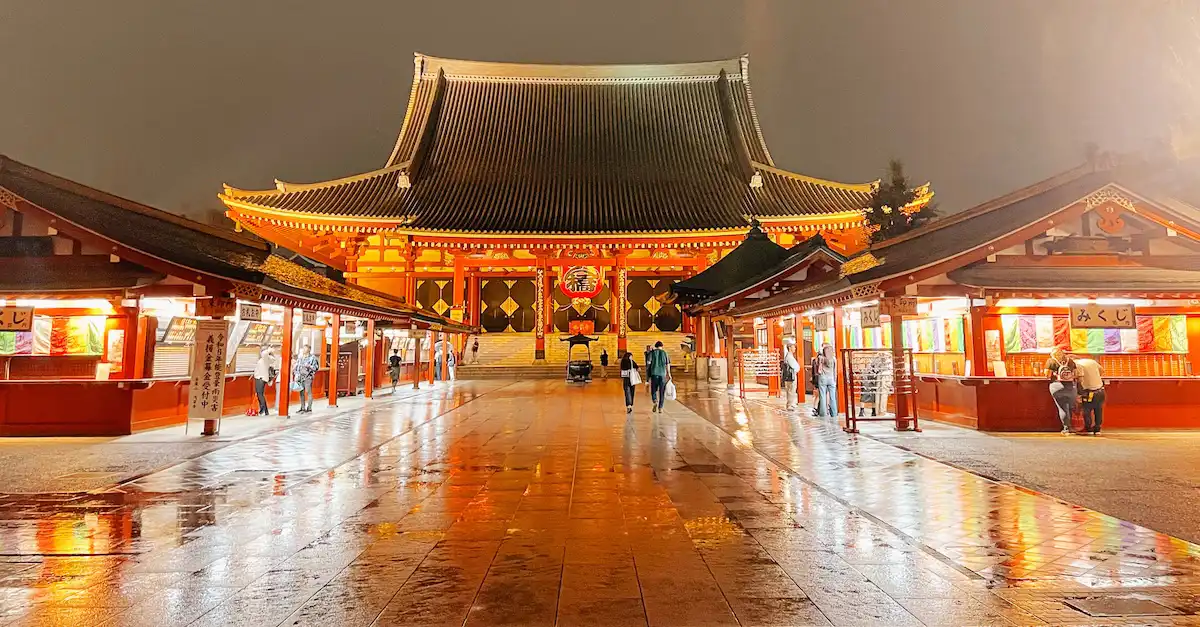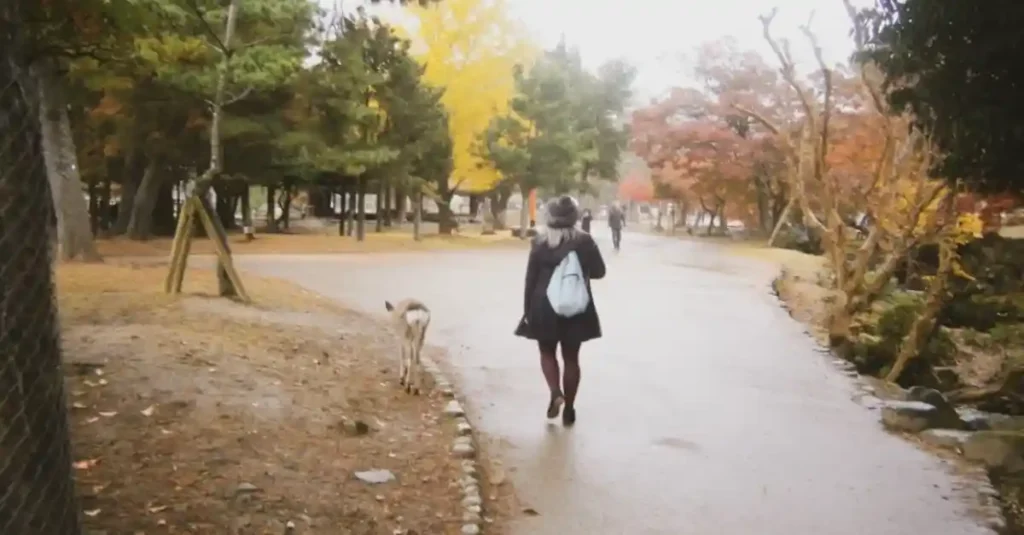It was a warm and humid Sunday evening in late October, and our final night staying in Asakusa before moving over to Shinjuku. After spending the morning at teamLab Borderless and the rest of the day shopping in Ginza, we exhaustedly returned to our hotel, OMO3 Asakusa, around 9 p.m. The day had been rainy, and the evening was no different—thick with humidity and a steady drizzle still falling. What began as a simple plan to grab dinner turned into a spontaneous visit to Senso-ji at night.
Finding dinner around Asakusa Station
After dropping all of our shopping bags in the room, we set out to grab dinner at a restaurant just across the street. The plan was to duck out, eat, and shuffle back to the room to rest our sore legs and feet after clocking over 20K steps. But, to our dismay, the restaurant was closed by the time we got there.
Wandering the streets around Asakusa Station, we were surprised to find very few restaurants open after 9 p.m., especially for a weekend. Maybe this part of town just isn’t as lively as Hoppy Street? After what felt like forever (and growing very hangry), we finally stumbled across a small ramen shop near Kannondori — Ramen Hayashida Asakusa Shop.
It was one of those tiny spots where you order your meal through a vending machine before sitting down at the bar in front of the kitchen. Being vegetarian, my options were pretty limited, but I decided to try the raw egg on rice, topped with bonito flakes and spring onion. (Yes, bonito is technically fish, but I’ve learnt flexibility is key when you’re starving abroad!) It was my first time trying this dish—and surprisingly, it was absolutely delicious.
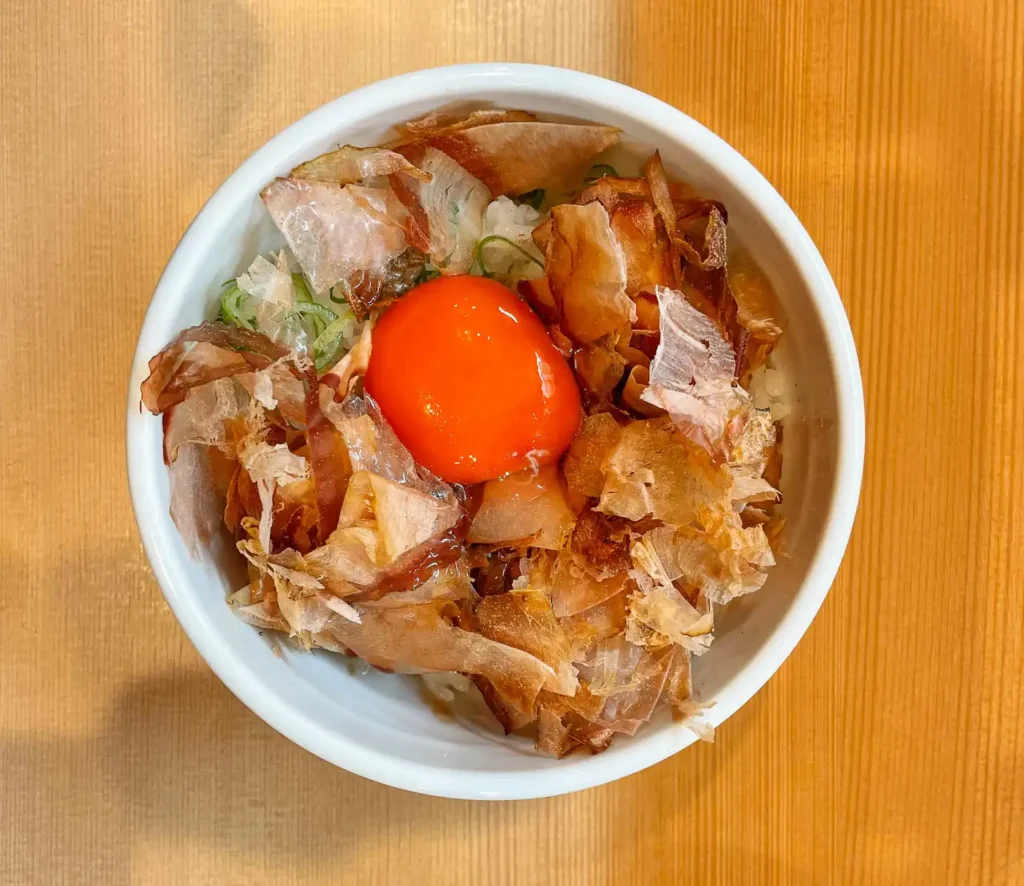
Senso-ji at night: An unplanned visit
During dinner, we decided to visit Senso-ji afterwards, since it was only a five-minute walk from the ramen shop. We already had Senso-ji on the itinerary for the next day, but knowing we had one last chance to see Senso-ji at night, we decided to make the most of the quiet, less crowded evening.
By the time we finished eating, the rain had gotten heavier and the humidity made everything feel even denser. The only problem was, we didn’t have umbrellas. When we had left the hotel, we thought we were just popping across the road and didn’t bother bringing them. Little did we know we’d end up venturing much further than planned. Still, we were committed—and after a quick glance up at the open skies, we set off toward the temple.
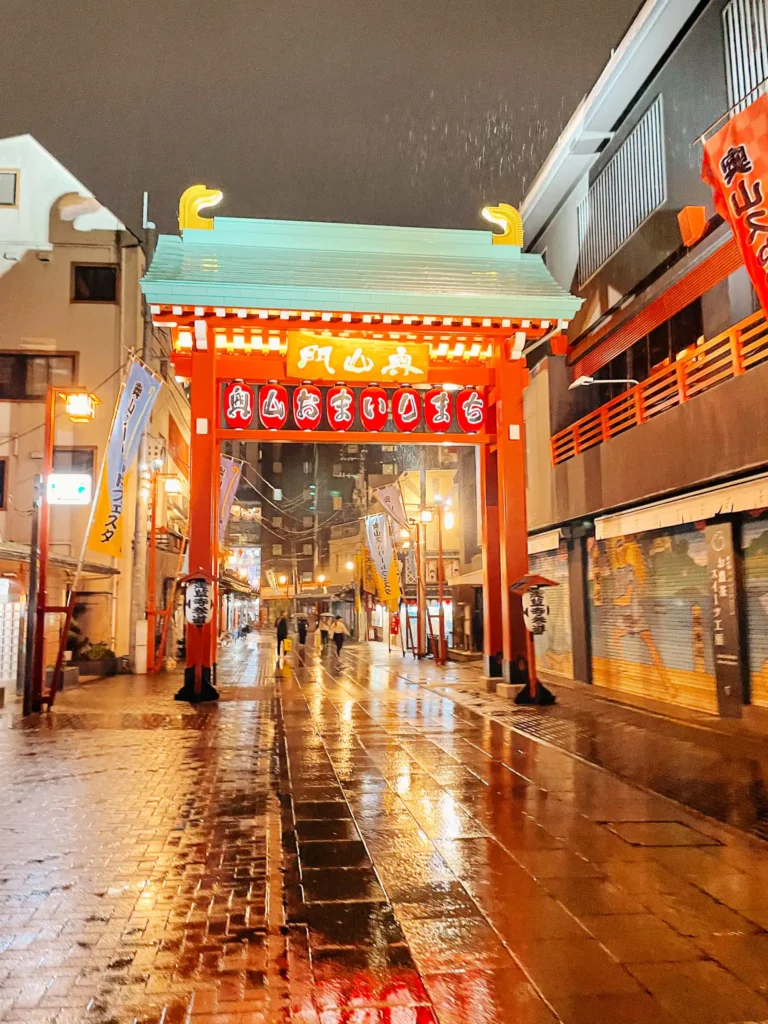
The cardboard umbrella situation
As we continued walking closer to the temple, the rain started to pick up. Too far to turn back now and reluctant to buy umbrellas for just one night, we scrambled for options. That’s when we passed two local shopkeepers recycling cardboard boxes in a side alley.
Without thinking much, I asked (in my best polite and broken Japanese), “Konbanwa, can we please use two of those boxes as umbrellas?” We all had a good laugh, and they happily handed over two big cardboard boxes.
So there we were: two tourists in Tokyo, marching through the rainy streets of Asakusa holding cardboard over our heads—and laughing hysterically at the absurdity of it all. The cardboard umbrellas were far from perfect, but we couldn’t help but feel a bit proud of our makeshift solution.
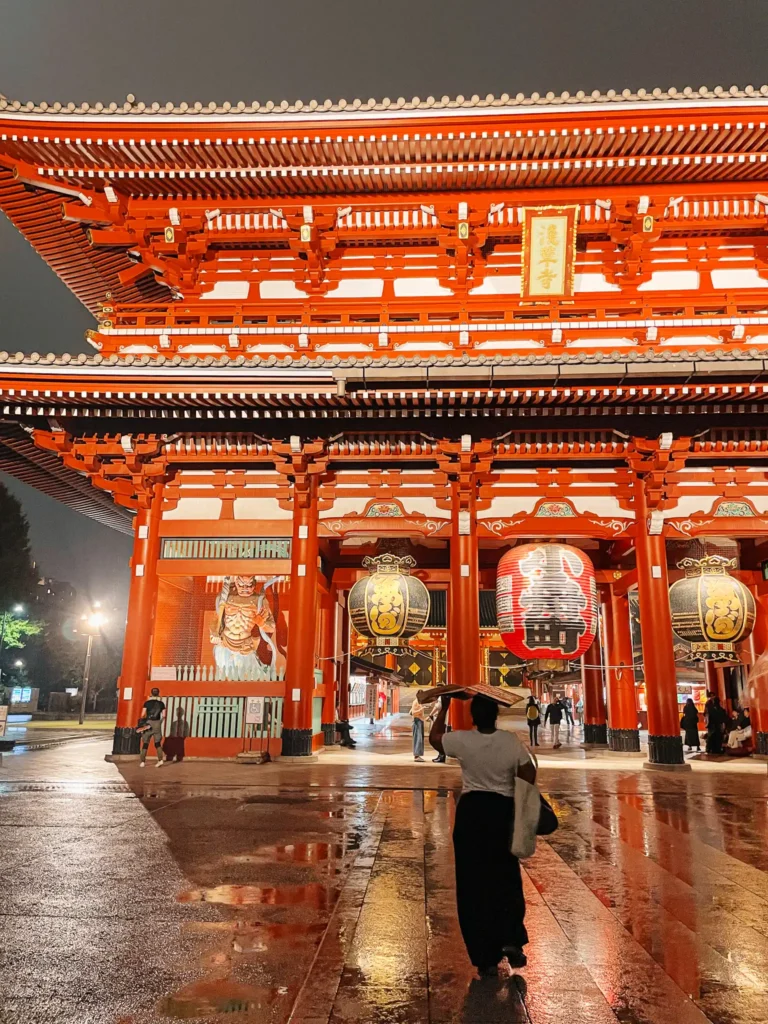
The magic of Senso-ji at night
By the time we reached the temple at 10.30 p.m., the rain had calmed down a little, but we still clutched our boxes like trophies. Surprisingly, the temple grounds were nearly empty. I mean, there were still a few other visitors wandering around, but compared to the bustling crowds of daytime, it felt like we had stumbled into a secret version of the world-famous site.
Senso-ji at night is a beautiful sight to behold—the temple glowed softly in the rain, its reflection shimmering on the wet pavement. Its appearance was heavenly and dreamlike—almost surreal. I had visited Senso-ji once before during the daytime, but the experience didn’t leave much of an impression. It was severely crowded, and I hardly had a chance to see anything up close. Visiting in the evening, however, felt like a completely different experience—like night and day. (No pun intended.) 😅
With the shops around Nakamise Street shuttered for the night, there were no distractions, no noise—just the sight of the grand temple gates, the towering pagoda, and the quiet sound of rain falling around us.
Finding stillness after dark
If you’re planning a visit to Senso-ji, I highly recommend going at night if you can. Staying near the temple allows you to experience its peaceful beauty both early in the morning and after dark, which offers an entirely different atmosphere. During the day, the crowds can be hectic, and you’ll miss the chance to fully appreciate the temple’s serene presence. At night, there’s room to breathe—and wow, is it worth it!
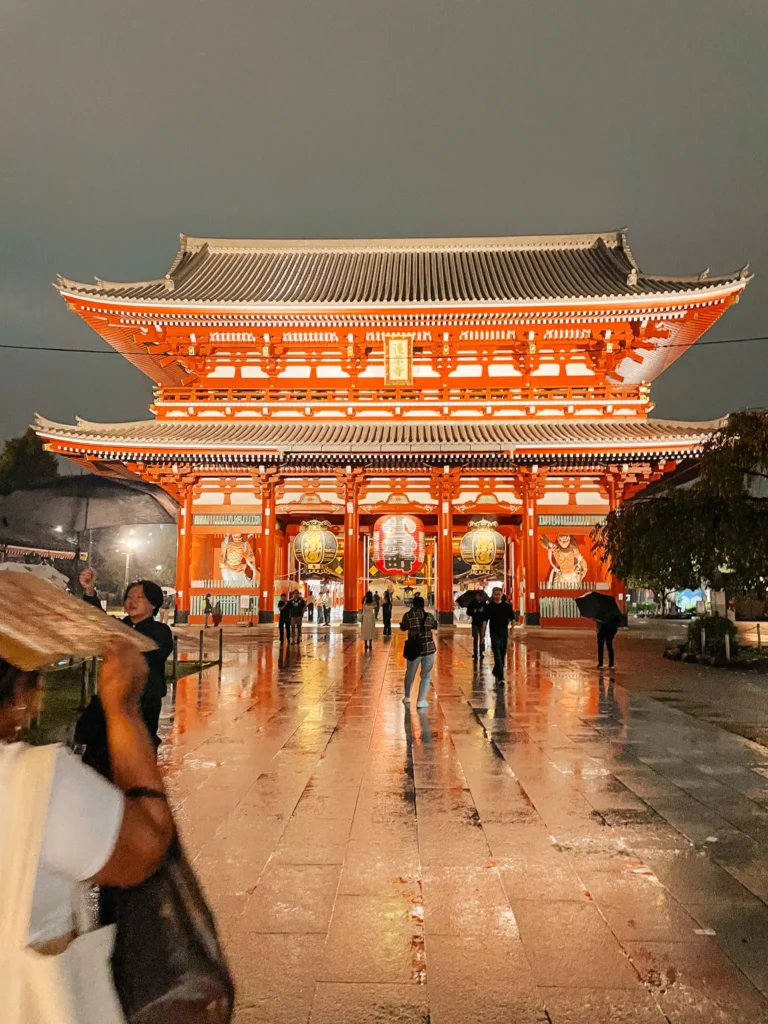
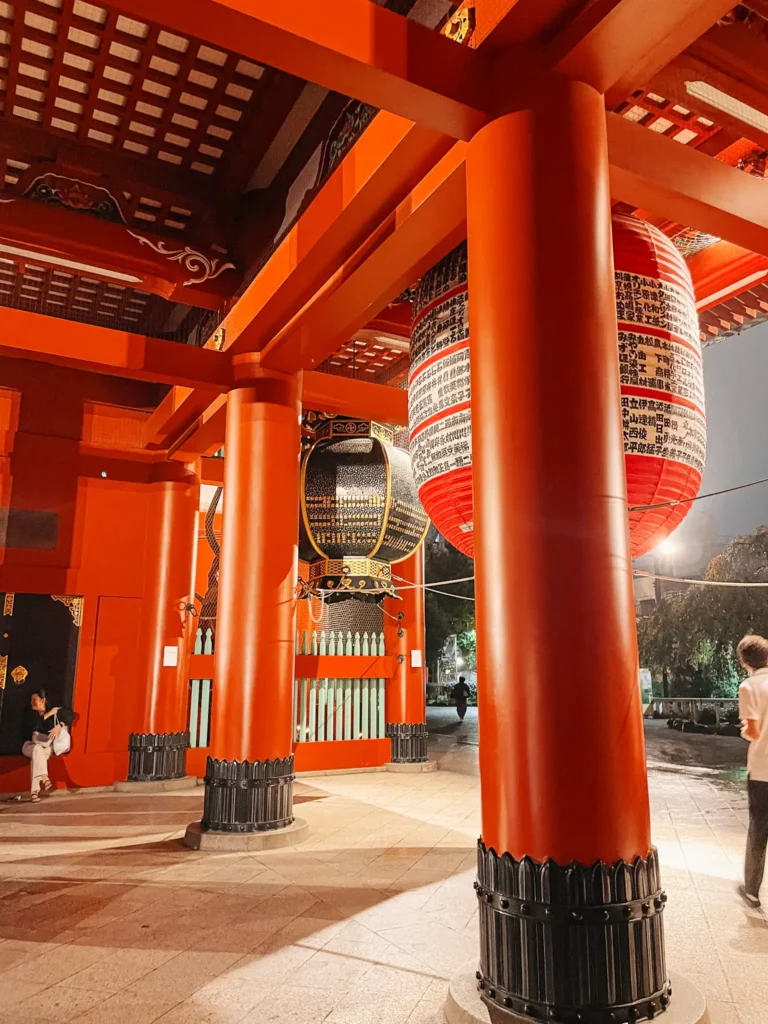
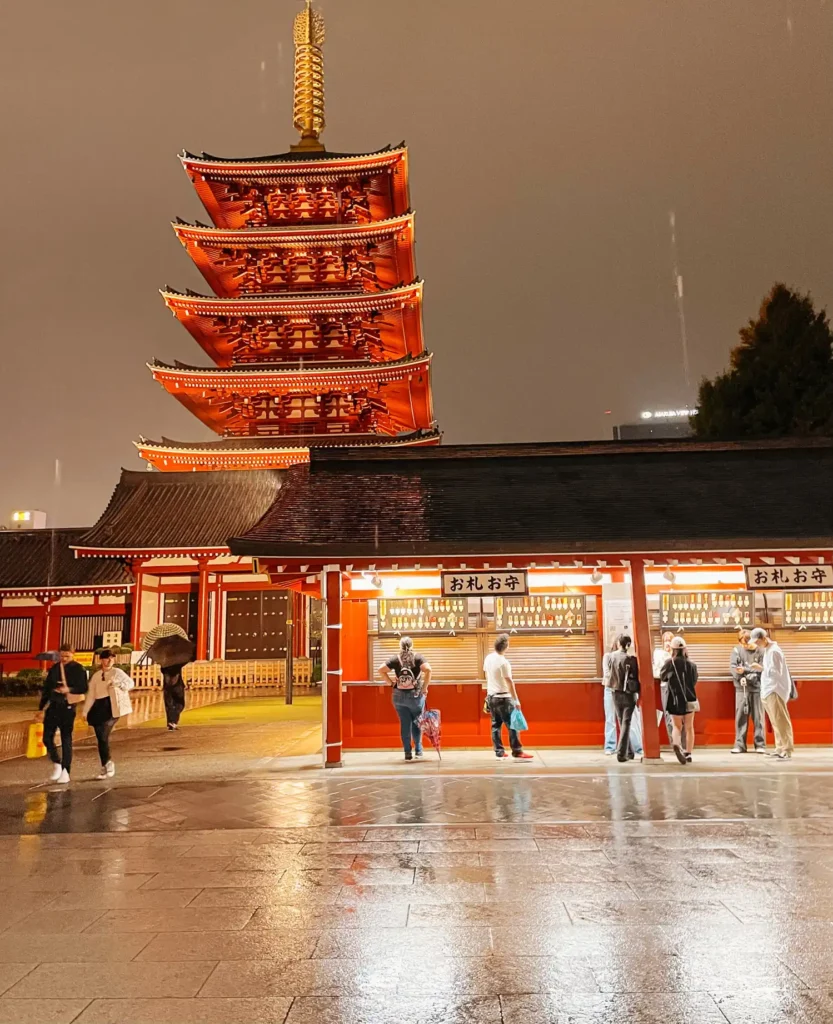
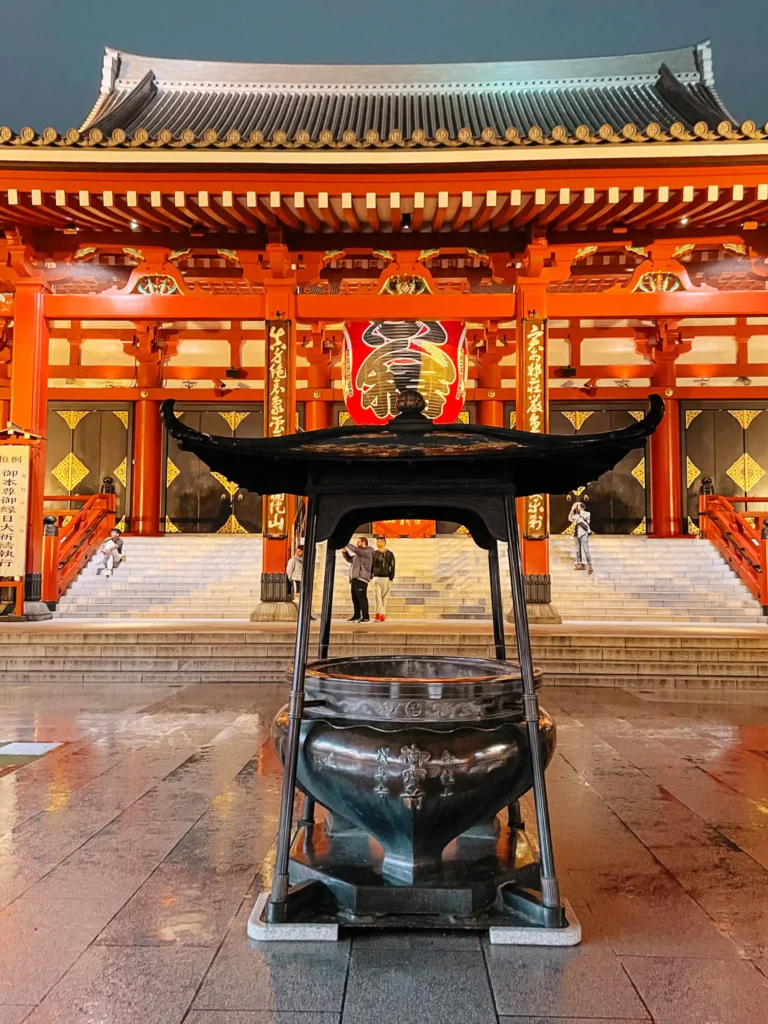
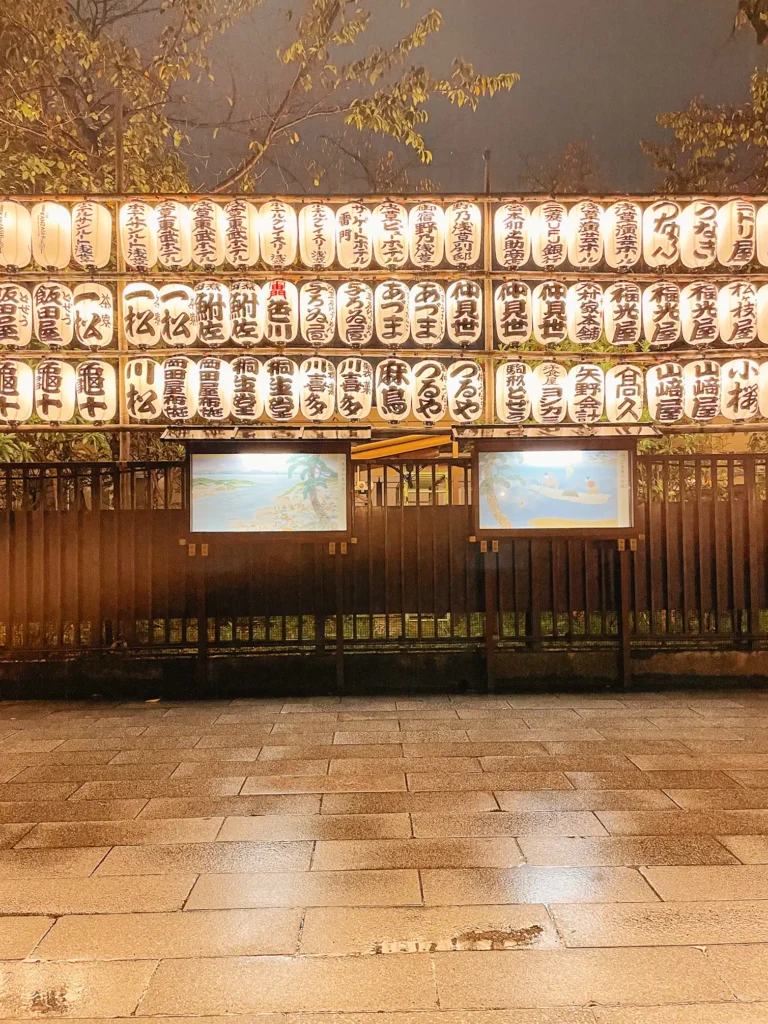
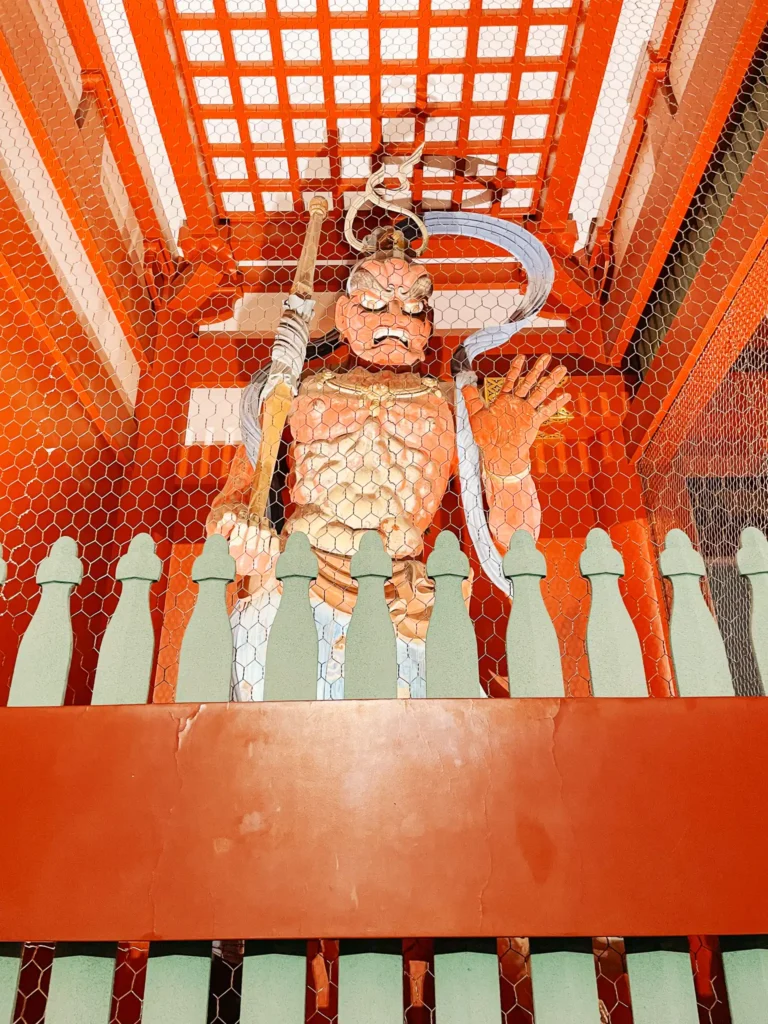
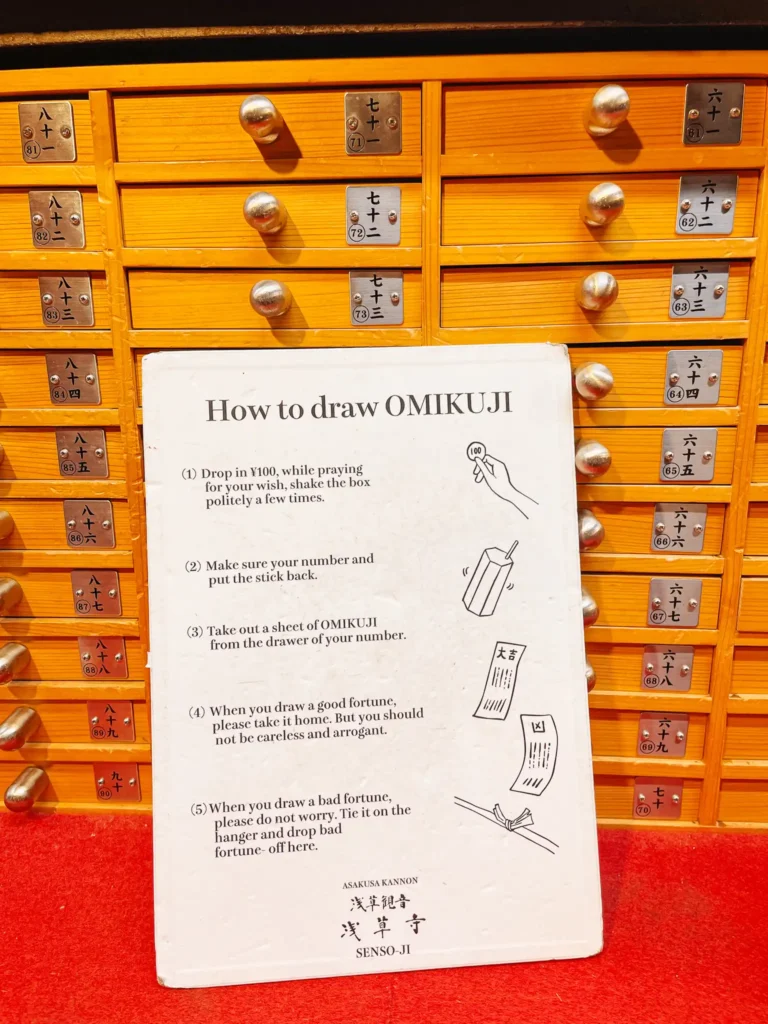
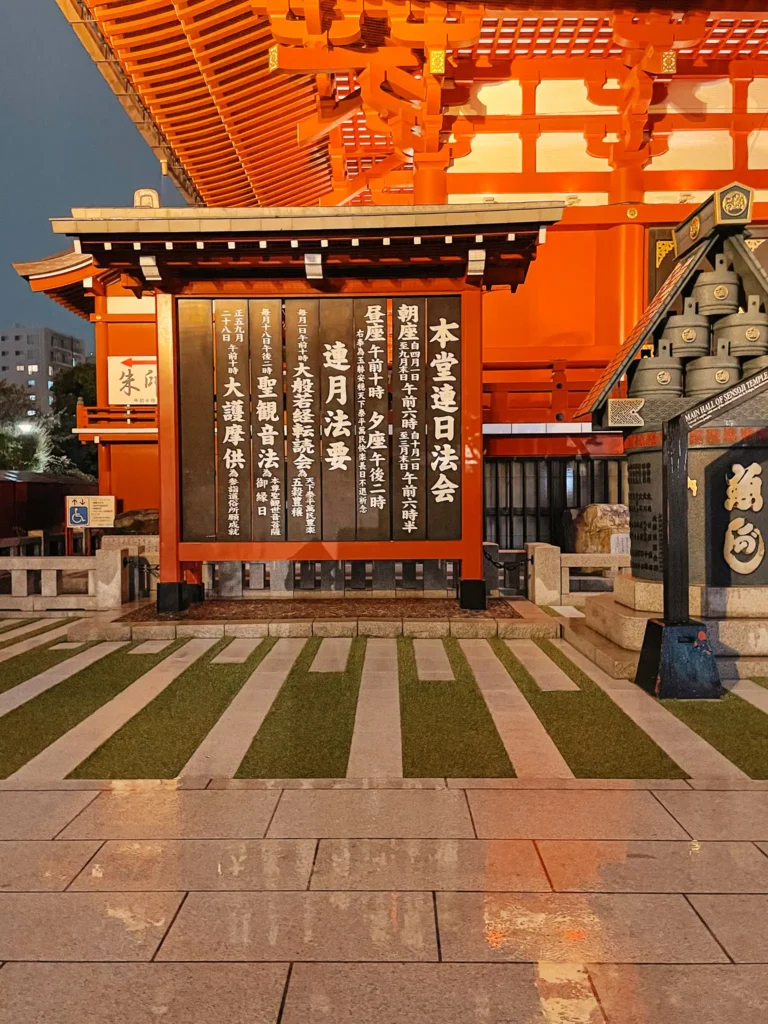

Final thoughts
As I stood by the temple, taking in the peaceful surroundings, I felt a deep sense of gratitude and connection. The soft glow of Senso-ji on a rainy night, paired with the simple beauty of being present, made the moment all the more memorable.
Because sometimes, it’s not the big bucket-list experiences or the Insta-worthy shots you remember the most.
It’s the little moments you accidentally wander into—like laughing with a friend under a soggy, makeshift umbrella, tired feet aching, while simultaneously soaking in the sacred silence of a place so beautiful that words can never fully describe.
